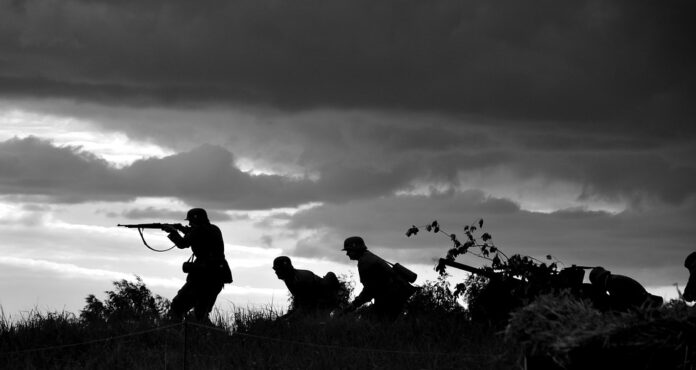(from the Blog of the Alphonsian Academy)
The frank denunciation of the war as a false answer to the problems has become more pressing in recent months in the magisterium of Pope Francis. In Fratelli tutti (nn. 256-262) it is strongly reaffirmed, giving further stimuli not only to theological reflection, but above all to the commitment of all to peace as an unavoidable condition for building the future.
“War is not a ghost of the past, but it has become a constant threat. The world is finding more and more difficulties in the slow path of peace which it had undertaken and which was beginning to bear fruit ”(FT, n. 256). The harshness of what is happening, especially the risk of an atomic catastrophe, makes commitment at all levels all the more urgent. In all forms, it must be reiterated that war is always a non-response to the problems that one would like to solve: “We can no longer think of war as a solution, since the risks will probably always exceed the hypothetical utility attributed to it. Faced with this reality, today it is very difficult to support the rational criteria developed in other centuries to speak of a possible “just war”. No more war! ” (FT, no. 258).
However, it is not possible to limit ourselves to reiterating statements of principle. The unconditional option for non-violence is for believers an indispensable requirement of the sequela Christi and a decisive criterion of their identity: “Blessed are the peacemakers, for they will be called children of God” (Mt 5: 9). And this is because, before being the responsibility and commitment of each one and of the entire community, it is a gift and a new possibility anticipated by the Spirit: it must be welcomed with confident joy in order to shape the mentality and act as a criterion for discernment at all levels.
I believe it is everyone’s responsibility to make all of this stand out more clearly. A new social feeling is needed, which refuses to legitimize attitudes and practices inspired by opposition and violence: from those present in everyday language and behavior to those concerning relations between groups and nations. It is illusory to think that we can say a convinced and constructive no to war when lifestyles do not allow themselves to be shaped by the logic of reciprocity, of dialogue, of walking together.
For this reason, it is important to share the commitment to reject, demonstrating their groundlessness and social dangerousness, the pseudo justifications, which are often propagated in different ways, above all by cleverly exploiting the capabilities of the media: “One easily opts for war – Pope Francis still remembers – making all kinds of apparently humanitarian, defensive or preventive excuses, also resorting to the manipulation of information “(FT, n. 258). More important, however, is the positive proposal of the culture of peace, as the only one that actually allows us to build an authentic future.
Like all values, even non-violence, to be effectively effective, one must discern, taking the possible steps with confidence. It must be an expression of dialogue and sincere confrontation. The warning of Gaudium et Spes remains current: “It will be the Christian vision of reality itself that will orient them, in certain circumstances, to a certain solution. However, other faithful equally sincerely will be able to express a different opinion on the same question, as happens quite often and legitimately “(n. 43).
Sabatino Majorano, CSsR
Emeritus Professor of the Alphonsian Academy







